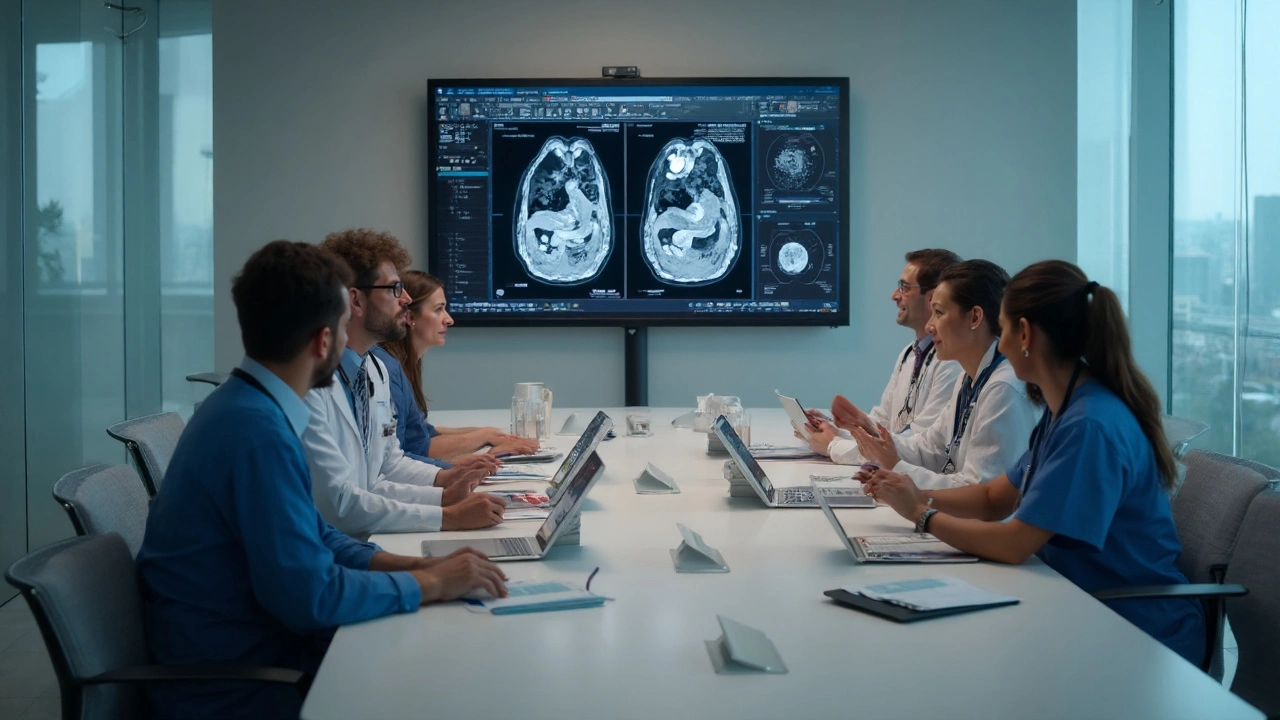Zollinger-Ellison Syndrome: What It Is and How to Manage It
If you’ve ever heard of a stomach tumor that makes your stomach produce way too much acid, you’re probably thinking about Zollinger‑Ellison syndrome (ZES). It’s a rare condition but the symptoms can feel pretty intense – burning pain, frequent ulcers, and diarrhea. The good news is that doctors know how to spot it and there are several ways to bring the acid levels down and keep you feeling normal.
What Causes Zollinger‑Ellison Syndrome?
ZES starts with a tiny tumor called a gastrinoma. These tumors grow in the pancreas or the upper part of the small intestine and release a hormone called gastrin. Gastrin tells the stomach to churn out acid, and when a gastrinoma goes rogue, the acid production can triple or even quintuple normal levels. Most gastrinomas are benign, but a small percentage can be cancerous, so early detection matters.
How to Spot It and Get Treated
The first clues are usually persistent heartburn that won’t respond to over‑the‑counter meds, or ulcers that keep coming back despite treatment. You might also notice oily stools, weight loss, or abdominal cramps. If a doctor suspects ZES, they’ll order a blood test to check gastrin levels and an imaging scan (CT, MRI, or endoscopic ultrasound) to locate the tumor.
Once the diagnosis is confirmed, treatment has two main goals: shrink or remove the tumor and control the acid. Surgery can cure many patients if the tumor is small and hasn’t spread. When surgery isn’t possible, doctors turn to medication. The most common drugs are proton‑pump inhibitors (PPIs) like omeprazole or esomeprazole, which block the final step of acid production. High‑dose PPIs can keep acid in check for most people, and they’re usually taken once or twice daily.
For tumors that can’t be removed surgically, other options include chemotherapy, targeted therapy, or a procedure called somatostatin analog therapy (e.g., octreotide) that slows gastrin release. Regular follow‑up appointments are key because the condition can recur, and monitoring gastrin levels helps catch any changes early.
Living with ZES means making a few lifestyle tweaks, too. Stick to a low‑fat diet, avoid spicy foods, caffeine, and alcohol, as these can irritate the stomach lining. Small, frequent meals are easier on the digestive system than big, heavy plates. If you’re on PPIs, take them before a meal and avoid missing doses – consistency is what keeps the acid under control.
Bottom line: Zollinger‑Ellison syndrome is rare but manageable. With the right tests, a clear treatment plan, and some everyday habits, you can keep the acid surge in check and enjoy a normal life. If you notice any of the warning signs, talk to your doctor right away – early action makes a big difference.

Zollinger‑Ellison Syndrome Care Guide: Multidisciplinary Diagnosis, Treatment, and Follow‑Up
Practical guide to team-based care for Zollinger-Ellison syndrome: how it’s diagnosed, key tests, treatment paths, surgery, meds, and follow-up with checklists.
read more




